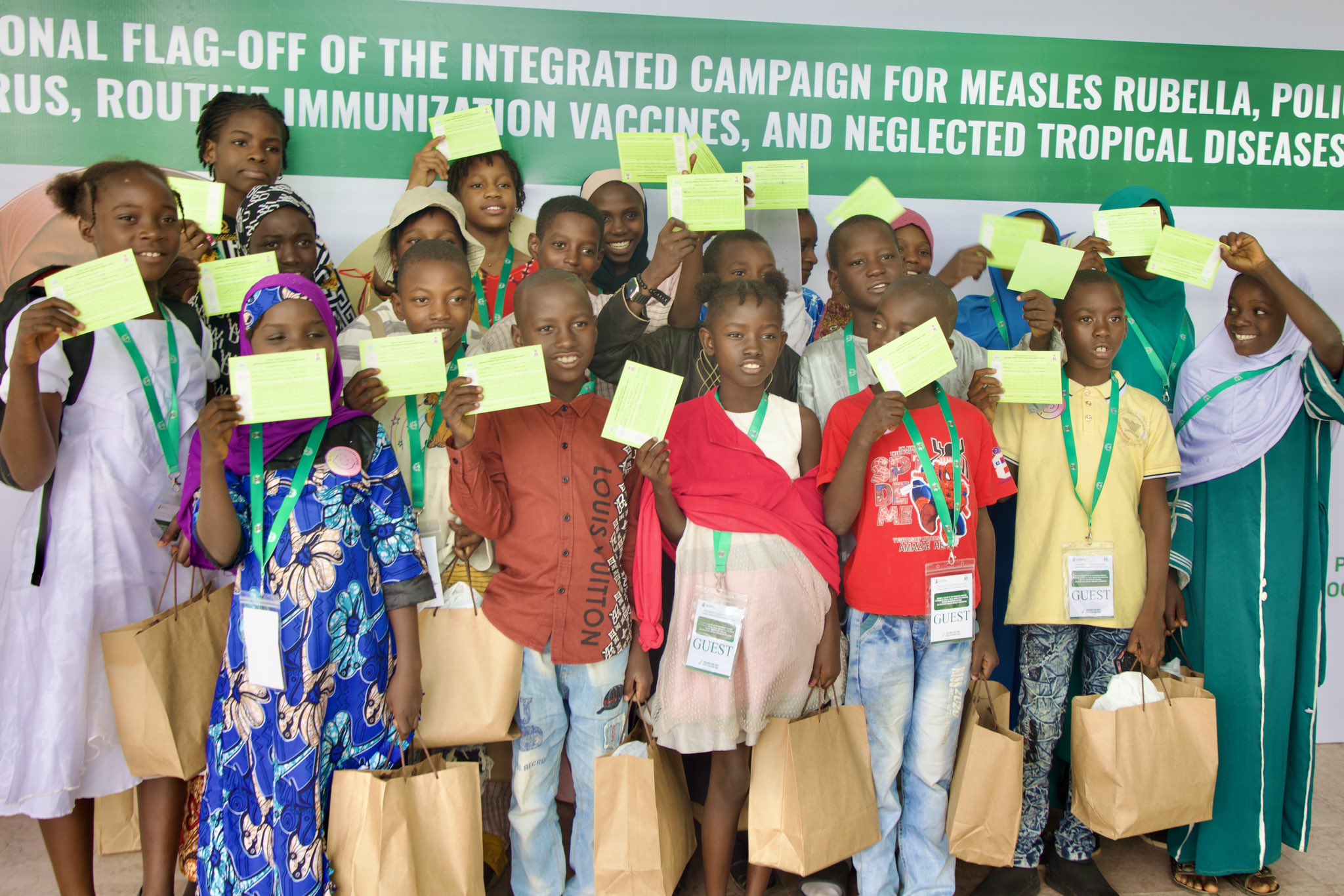Nigeria has launched one of the largest integrated vaccination campaigns in its history, a nationwide effort aimed at protecting more than 106 million children against measles, rubella, and poliomyelitis, according to the World Health Organization (WHO).
The global health body announced on Monday that the campaign represents a major milestone in Nigeria’s public health strategy, combining multiple vaccines and essential child health services under a single coordinated drive, the News Agency of Nigeria reported.
Dr. Ali Pate, Nigeria’s Minister of Health and Social Welfare, commended frontline health workers for their commitment and urged continued resilience throughout the campaign.
“As a parent myself, I know that no parent would ever refuse something that protects their child. Vaccines are safe, and they save lives,” he said.
The campaign builds on two successful In-Between Round Activities held earlier this year across 11 northern states, which reached over 3.1 million children with vaccines, provided nutrition support to 500,000 malnourished children, and distributed anti-malaria treatments to 150,000 children.
Dr. Mohammed Janabi, WHO’s Regional Director for Africa, described Nigeria’s integrated vaccination strategy as a model for other African nations.
“By uniting efforts against measles, rubella, and polio and working hand-in-hand with communities, we move closer to ensuring that no African child dies from preventable diseases,” he said.
- The campaign will target children aged 0–14 years for measles and rubella, and those aged 0–59 months for polio.
- It will be rolled out in two phases, with the first phase, which began this week, covering 20 high-risk northern states alongside Oyo State in the southwest.
- The second phase is scheduled for January 2026 and will extend to the remaining southern states.
- Health workers will operate through fixed posts, temporary outreach points, and house-to-house “sweep teams” to ensure that even children in remote or hard-to-reach communities are covered.
Beyond vaccinations, the campaign integrates routine immunization with other essential child health services, including malaria prevention and treatment for neglected tropical diseases. This approach aligns with Nigeria’s Primary Health Care Under One Roof policy and the Health Campaign Effectiveness framework designed to strengthen the country’s health systems.
What you should know
The campaign comes amid continued outbreaks of circulating variant poliovirus type 2 (cVDPV2) and measles across Nigeria and the wider Lake Chad Basin. To curb the spread, Nigeria is collaborating with Cameroon, Chad, Niger, and the Central African Republic through a joint cross-border plan aimed at ending active outbreaks by late 2025 and eliminating remaining transmission risks by 2026.
In preparation for the rollout, the government has revamped its operational systems, including enhanced data integration, redesigned payment processes for frontline workers, and improved logistical coordination to strengthen accountability.
The campaign will also introduce a new combined measles-rubella vaccine, replacing the measles-only vaccine, to provide broader protection.
The initiative is being implemented by the Nigerian government in partnership with WHO, UNICEF, Gavi, the Vaccine Alliance, Rotary International, the Bill & Melinda Gates Foundation, the Africa CDC, and various civil society, traditional, and religious groups.







